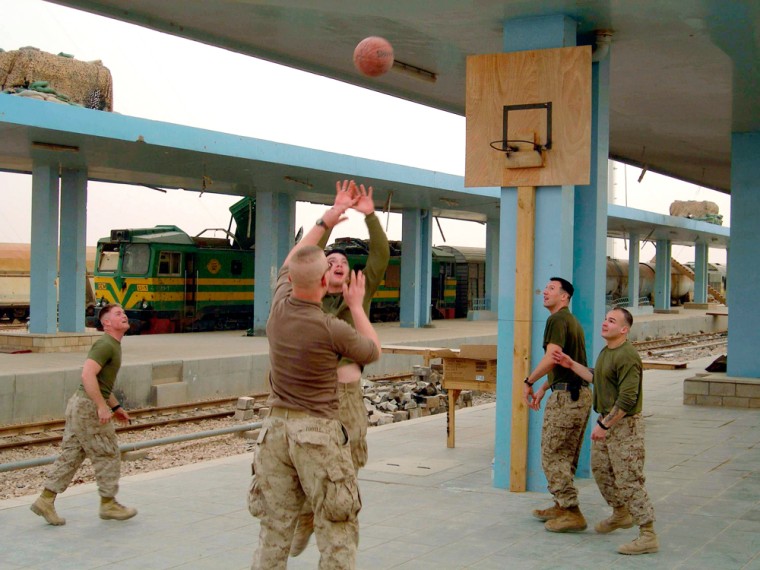News travels slowly to American troops deployed in the desert plains of Iraq. Days after the bombing of a Shiite shrine convulsed the country in religious violence, word hadn’t reached U.S. Marines some 160 miles away.
“We don’t know what’s going on in Iraq, except for what’s going on here,” said Cpl. Matt Waldman of Somerset, N.J., of the 3rd Battalion, 6th Regiment. “We’re so far away that we don’t hear anything.”
In these border cities about 200 miles west of Baghdad, little information flows in except for intelligence about the neighborhoods the troops are trying to stabilize.
“Gay cowboys?” asked Navy Corpsman Brandon Bonner incredulously after learning that the film “Brokeback Mountain” was a leading Oscar contender. Brandon said he gets most of his news in packages from home that include old newspapers.
For the Marines here, reports about suspicious cars or tips on weapons caches carry more urgency than news about Vice President Dick Cheney wounding a fellow hunter or the furor over Arab management of six U.S. ports.
“They don’t tell us anything, other than I have to be on post at 1800 hours,” said Lance Cpl. Philip Tootle of Reidsville, Ga., after he learned of the bombing of a Shiite shrine in Samarra.
'Need to know' basis in military
All this is nothing new in the military — a culture where information is often parceled out on a “need to know” basis. Combat soldiers in World War II often didn’t know — and didn’t care — what was happening a few miles away. Veterans joked that most infantrymen assumed they had lost every battle.
That doesn’t mean U.S. commanders here were oblivious to the bombing and reprisal attacks sweeping Baghdad and other Iraqi cities. Battalion headquarters alerted commanders and senior noncommissioned officers to be on the lookout for religiously motivated attacks and threats against tribal or religious leaders.
But the sectarian violence didn’t reach here. The area is almost exclusively Sunni, and most of the Shiites — the sect that carried out reprisal attacks after the shrine bombing — are Iraqi soldiers.
As a result, the word from battalion headquarters didn’t seep down to U.S. troops.
More than 36 hours after shrine’s golden dome was destroyed by a bomb Feb. 22, one squad on patrol in Rommana hadn’t heard the news. Many Marines in a platoon in Husaybah still hadn’t learned about the precarious state of Sunni-Shiite relations more than five days after the bombing.
Military newspaper delivered
That wasn’t the case elsewhere within the 136,000-strong U.S. military force. U.S. soldiers in Baghdad, a center of the unrest, increased security patrols. And American troops in most parts of Iraq have regular access to the Internet, television, and the military newspaper “Stars and Stripes.”
But in Battle Post Beirut in Husaybah, dozens of Marines were lucky to have an unreliable satellite dish and a few television channels.
“That’s the thing about us — we are on our own out here,” said Pfc. Robert Eunice of Columbus, Ohio. “We don’t have a phone, we don’t have Internet, and the only outside contact we have is when we get resupplied by our buddies.”
There are times, the Marines said, that ignorance is bliss.
“Sometimes it’s better that they don’t tell us anything,” Tootle said. “If, say, six Marines get killed, who wants to hear that?”
